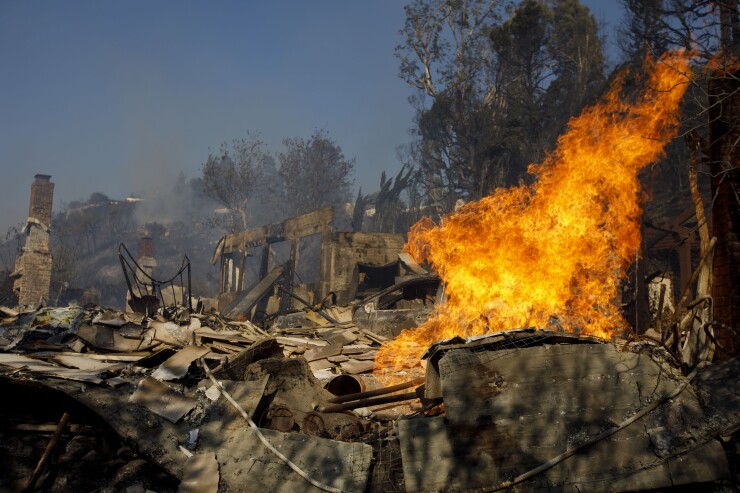Form 1094 and 1095 series returns for 2017, due in the early months of 2018 from Applicable Large Employers and providers of Minimum Essential Coverage are not included in tax filing and penalty relief that the IRS has extended to individuals and businesses affected by the wildfires and subsequent flooding, mud and debris flow in California’s Los Angeles, San Diego, Ventura and Santa Barbara counties.
The relief, triggered by

Who is eligible for the relief? The relief extends to “Affected Taxpayers,” meaning individuals who reside in the affected counties, businesses — including nonprofits — with a principal place of business in the affected counties, and taxpayers located outside the affected counties who stored records in the affected counties that are necessary to fulfill filing deadlines. Also eligible for relief are governmental or charitable aid workers who assisted in the disaster areas; and any visitor to the disaster areas who was killed or injured as a result of the disaster.
What Relief is Available in Relation to Benefit Plans?
Very little if any relief is extended with regard to benefit plan tax reports and statements.
· As mentioned, there is no extension for ACA reporting required to be filed and furnished by Applicable Large Employers. Those deadlines remain as follows:
o File Form 1095-Cs with IRS by
§ February 28, 2018 (paper); or
§ April 2, 2018 (e-file);
o Furnish Form 1095-Cs to Employees by March 2, 2018.
· These same deadlines apply to Forms 1095-B filed and furnished by providers of minimum essential coverage, and related transmittal Form 1094-B.
· There is no extension to deadlines for forms in the 1099 series, including Forms 1099-R related to retirement plan and IRA distributions.
· There is some limited relief with respect to annual return/reports for retirement and certain health and welfare plans (Form 5500 series). Specifically, the April 30, 2018 extended deadline is available only to Affected Taxpayers who are unable to obtain from a bank, insurance company, or any other service provider, on a timely basis, information necessary for completing the forms, because the service provider’s operations are located in a covered disaster area. In these limited circumstances, both the Department of Labor and the PBGC will recognize the same deadline extension.
Detailed related information on disaster-related relief affecting benefit plans returns and reports is found in Section 17 of
In a
How do You Claim Relief?
If you qualify for relief and receive a late filing or late payment penalty notice from the IRS, you are advised to call the phone number on the notice to request that the IRS abate the penalty due to the disaster relief. The IRS announcement states that the Service will automatically identify, and apply filing and penalty relief to, taxpayers located in the affected counties. However taxpayers located outside the disaster area (for instance those whose tax records are stored in the damaged areas) will need to call the IRS disaster hotline at 866-562-5227 to request relief.





